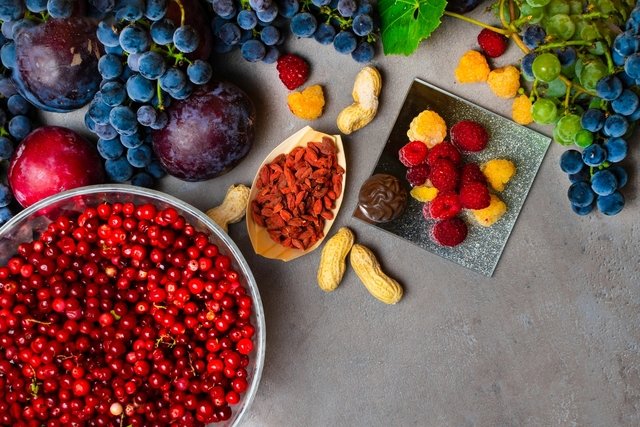Resveratrol is a phytonutrient found in some plants and fruits that contains antioxidant and anti-inflammatory effects. It can be found in natural grape juice, red wine and cocoa, but can also be consumed through supplements.
Resveratrol has several health benefits due to it antioxidant power. It protects the body from oxidative stress, combats inflammation and helps to prevent some types of cancer. It also improves the appearance of the skin, reduces blood cholesterol levels, and promotes well-being.
Therefore, foods that contain resveratrol can be included in your daily diet. Before starting resveratrol supplements, however, you should first consult your doctor to determine your ideal daily dose.

Health benefits
Resveratrol contains antioxidant, anticancer, antiviral, protective, anti-inflammatory, neuroprotective, phytoestrogenic and anti-aging properties. For this reason, resveratrol can offer several health benefits, such as:
- Improving skin appearance and preventing premature aging.
- Purifying and detoxifying the body to promote weight loss.
- Protecting the body from cardiovascular diseases by relaxing blood vessels to improve blood flow
- Reducing LDL cholesterol, popularly known as bad cholesterol;
- Promoting wound healing
- Preventing neurodegenerative diseases, such as Alzheimer's, Huntington's and Parkinson's disease.
- Helping fight inflammation in the body.
- Helping to prevent cancer, such as colon and prostate cancer, as it is capable of suppressing the proliferation of various tumor cells.
It is important to keep in mind that just consuming foods that are sources of resveratrol is not enough to guarantee its benefits. You are advised to maintain a healthy, balanced diet and to exercise regularly.
Foods rich in resveratrol
Resveratrol can be found naturally in several foods, the main ones being:
- Red wine
- Purple grapes
- Natural grape juice
- Cocoa
- Bitter chocolate
- Pistachio
- Peanut
- Cranberry
- Blueberry
These foods can be included in your daily diet as recommended by your registered dietitian.
How to consume
Foods that are rich in resveratrol can be consumed in their natural form or used to prepare recipes, such as jellies, pastes and/or desserts. For red wine, you should limit consumption to one glass per day, as recommended by your doctor. .
Resveratrol supplements should be taken as prescribed by a doctor or registered dietitian. In general, the recommended dose of resveratrol for healthy people varies between 30 and 120 mg/day, and should not exceed 5 g/day.
Side effects and contraindications
Excess resveratrol can cause gastrointestinal disorders, such as diarrhea, nausea or vomiting.
Resveratrol supplements should not be used by children, pregnant or breastfeeding women.
Furthermore, people who use medications such as anticoagulants, statins, antihistamines, immunosuppressants and anti-inflammatories, such as aspirin, ibuprofen, diclofenac and naproxen, should avoid using supplements with resveratrol. These supplements can potentiate or reduce the effect of these medications.
